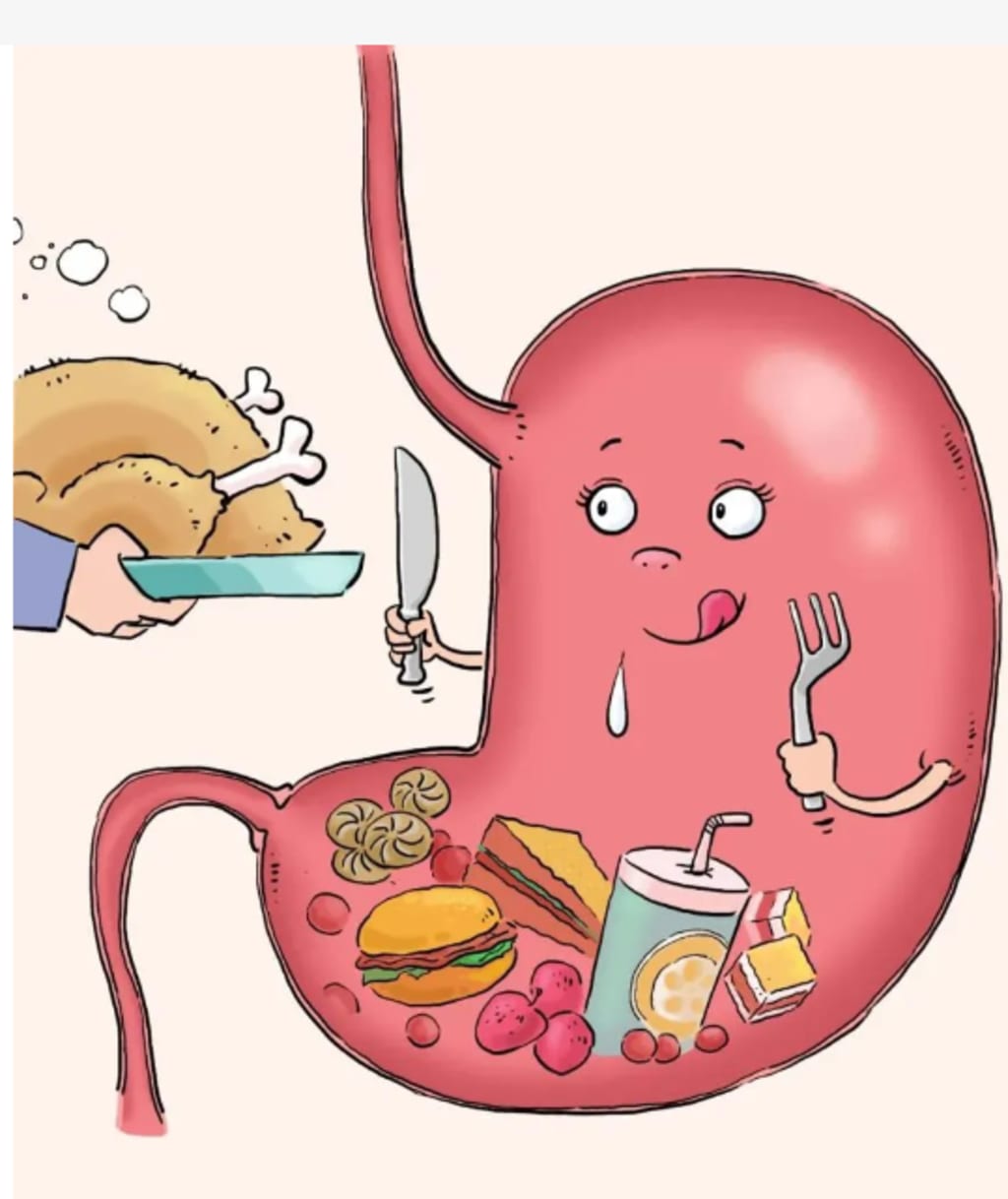
At mealtimes, we often hear some restrained girls say, "We can't eat any more, or our stomachs will swell!"
Yes, many people think that our stomachs are like a bad balloon, often blow too big, will become more and more loose, even in danger of bursting; If you don't blow it, the rubber will age and the stomach will gradually shrink.
Are our stomachs really as fragile as balloons? First we need to understand the structure of the stomach.
Does prolonged overeating or starvation change stomach volume?
Our stomach is a muscular organ, which means it's a house of muscles, several layers of muscles.
The innermost lining of the stomach wall is a variety of gastric glandular cells that secrete gastric acid, proteasogen and some gastrointestinal hormones. There is an intermuscular plexus between the layers of smooth muscle in the stomach wall, which periodically sends electrical impulses to keep the stomach wall contracted, so that the stomach is normally in a state of mild contraction. The stomach is slightly tubular with a capacity of about 50mL when completely empty, and balloon-shaped with a capacity of up to 2L when highly filled.
The stomach divides the pylorus, antrum, stomach body, cardia and the bottom of the stomach from top to bottom. But in fact, when we eat, even if we eat more food, most of it is limited to the antrum and the lower part of the stomach body, and the other parts have no food, which mainly plays the role of relieving pressure.
When we eat, the stomach will appear receptivity diastole, that is, the volume of the stomach becomes larger to prepare for the holding of food. At the same time, the secretion of the glands in the stomach increases, emptyling is delayed, and peristalsis is enhanced. The purpose is to make the food fully mixed with the gastric juice in the stomach, to form chyme of the food, to digest protein to a certain extent, and to prepare for the next absorption in the intestine. The food containing more carbohydrates stays in the stomach for a shorter time, while the food containing more protein and fat stays for a longer time. The stomach emptying time of mixed food is generally 4 to 5 hours. This determines the spacing between our meals.
When the food is empty, the stomach returns to its original form, and the intermuscular nerve plexus in the stomach wall constantly sends basic electrical impulses, keeping the stomach in a slightly contracted state.
So whether it is often overstuffed or hungry, there is no stomach capacity to expand or shrink the problem, because the shape of the stomach is different according to whether there is food, how much food, our stomach has a very good telescopic ability.
Constant overeating or starvation hurts the stomach
Even if overfed or hungry, the stomach capacity is neither enlarged nor starved to atrophy. But that doesn't mean we should indulge our diets and eat whenever we want.
Relative to the shape of the stomach itself, we should pay more attention to the gastric mucosa. Chronic overeating or starvation has definite effects on gastric mucosa and stomach function.
One of the main stimuli of our stomach's secretion of gastric acid and pepsinogen is food. Long-term hunger and lack of food stimulation will lead to insufficient gastric acid secretion and affect the digestion of food. At the same time, mucosal glands may atrophy due to disuse.
At the same time, long-term hunger, due to the lack of food stimulation, bile long-term retention gallbladder is not discharged, resulting in increased water absorption, a long time is easy to cause gallstones.
When eating excessively for a long time, it will obviously affect the emptying function of the stomach and appear abdominal distension. In the long run, it will lead to chronic gastritis and cause the decline of digestive function.
In addition, if you eat too much at once, there may be vomiting, acute gastric dilation and even stomach perforation problems, imagine the balloon blown to the limit after the scene, you know how terrible the consequences!
In short, our stomach will not change its capacity because of overeating or hunger, but we should also try to avoid long-term overeating or hunger, maintain three regular meals, you are good for the stomach, stomach is good for you.






Comments
There are no comments for this story
Be the first to respond and start the conversation.